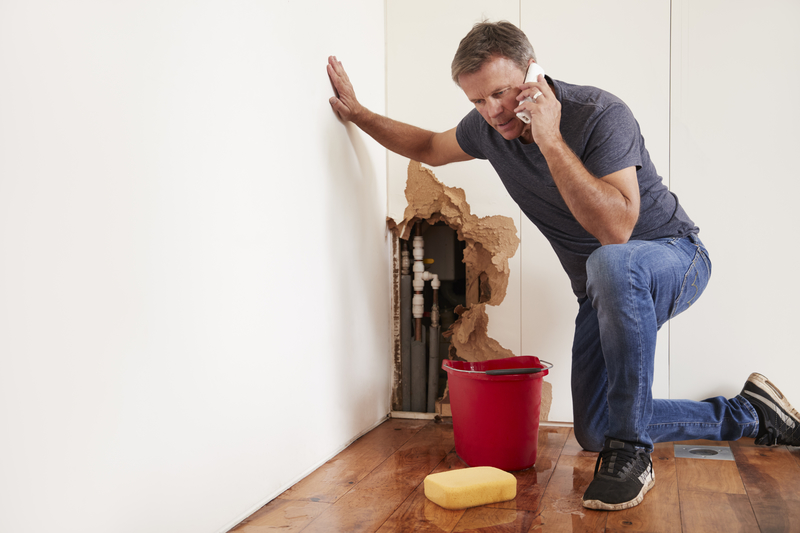Plumbing issues in a home can range from mere annoyances to full-blown crises that require immediate attention. Understanding the underlying causes can help you take preventative measures and make informed decisions when repairs are needed. We will delve into some common reasons why your home might be experiencing plumbing problems, including clogs, aging pipes, and hard water.
Clogs
Clogs are a prevalent cause of plumbing issues. They occur when hair, soap scum, grease, or foreign objects obstruct the free flow of water in your drains. The immediate symptoms can include slow-draining sinks, gurgling noises, or even water backing up into sinks, tubs, or toilets. Over time, untreated clogs can lead to more severe issues like pipe corrosion or sewage backup. To prevent clogs, avoid flushing anything other than human waste and toilet paper down the toilet. In the kitchen, never pour grease down the sink, and use a strainer to catch food particles. For bathrooms, a hair trap can be a lifesaver. Regular maintenance, such as using enzymatic drain cleaners or manually removing obstructions, can keep your plumbing in top shape.
Aging Pipes
Older homes often come with plumbing made of materials that have long since been phased out due to durability issues, such as galvanized steel or even lead. These materials are prone to rust, corrosion, and leaks, all of which can cause significant plumbing issues over time. Replacing your entire plumbing system can be a costly project, but doing so can save you from frequent repairs and potential water damage. If you’re living in an older home, it’s advisable to have your pipes inspected by a qualified professional. They can assess the condition of your pipes and recommend either spot repairs or a complete replacement, depending on the situation. Preventive measures, such as insulating pipes to prevent freezing in cold weather, can also extend the lifespan of your plumbing system.
Hard Water
Hard water contains high levels of minerals like calcium and magnesium. While generally not harmful to consume, hard water can wreak havoc on your plumbing system. Over time, the minerals in hard water can accumulate inside pipes, reducing water flow and leading to clogs or even bursts. Appliances that use water, like dishwashers and washing machines, can also suffer from reduced efficiency and a shorter lifespan due to hard water. To mitigate the effects of hard water, homeowners can install a water softener that removes excess minerals. This not only protects your plumbing but also makes detergents and soaps more effective, and can even improve the feel of your clothes and skin.
Plumbing problems can be a source of frustration, expense, and even property damage if not addressed. Understanding the root causes — whether it’s clogs, aging infrastructure, or hard water — can help you take the appropriate measures to prevent and address these issues. While some fixes are straightforward, like unclogging a sink, others, such as replacing aging pipes, can be more involved and expensive. Being proactive about maintaining your home’s plumbing can go a long way in preventing issues and ensuring a smoothly functioning system.
Did You Enjoy Reading This Article? Here’s More to Read: Factors That Can Make Your Home a Hazard


